 312-704-0771
312-704-0771
Recent Blog Posts
What Options Are Available to a Creditor When Repossessing a Vehicle?
Repossession of a vehicle is an effective way for auto lenders to recoup losses in the event that a customer has not been able to meet their contractual payment obligations. However, when a creditor repossesses a vehicle from a borrower, it can be a tricky and uncertain process. Creditors need to be aware of their legal rights and the options available to them in these situations.
Due Process Requirements
The first step for any creditor is to familiarize themselves with the due process requirements in their state. Creditors may have certain duties they are required to fulfill before they can legally repossess a vehicle. In some states, a creditor may be required to provide written notice to the borrower, informing them of their right to cure the default. However, Illinois law does not require a creditor to notify a debtor prior to proceeding with a repossession. If necessary, creditors may still contact debtors to notify them of missed payments and inform them of the consequences of defaulting on a debt.
How to Protect Creditors’ Rights When a Debtor Declares Bankruptcy

Creditors have a right to take all reasonable measures to recover debts owed to them. However, debtors are also afforded with certain protections, and they may take steps to eliminate the requirement to pay certain debts by filing for bankruptcy. When a debtor declares bankruptcy, creditors should take the appropriate steps to protect their rights and determine how they can minimize their losses. The steps creditors can take in these situations include understanding the relevant provisions of the U.S. Bankruptcy Code, determining how different types of bankruptcy will affect creditors’ rights, contacting a bankruptcy trustee to discuss their rights as a creditor, paying close attention to any documents they receive from court officials or trustees, taking full advantage of all available remedies under state and federal law for recovery of their claims, and remaining in contact with their attorney throughout the bankruptcy process.
Read Our Top 10 Debt Collection and Creditors’ Rights Blogs for 2022
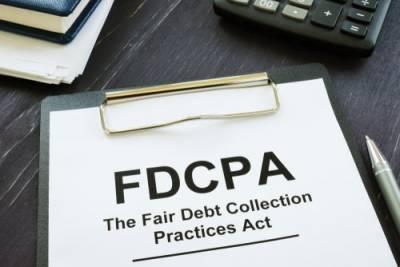 With the changing laws and regulations surrounding debt collection rights, keeping up with the latest developments can be a challenge for creditors. At Dimand Walinski Law Offices, P.C., we are dedicated to representing creditors in debt collection matters, and we also regularly publish blogs to help keep creditors informed of the relevant issues that may affect them. We wanted to highlight the top 10 blogs that visitors to our site read in 2022:
With the changing laws and regulations surrounding debt collection rights, keeping up with the latest developments can be a challenge for creditors. At Dimand Walinski Law Offices, P.C., we are dedicated to representing creditors in debt collection matters, and we also regularly publish blogs to help keep creditors informed of the relevant issues that may affect them. We wanted to highlight the top 10 blogs that visitors to our site read in 2022:
-
What Are the Statutes of Limitation for Debts in Illinois? - This blog looks at the time limits that apply to creditors who are seeking to collect unpaid debts. We updated this blog in 2022 to provide more information about the procedures that creditors will need to follow to pursue judgments against delinquent debtors.
-
Illinois Suspends Vehicle Repossession by Auto Lenders - In 2020, the state of Illinois took action in response to the COVID-19 pandemic to prevent creditors from repossessing vehicles from delinquent debtors. We provide information about how this order affected creditors, including updates about the options that may be available after the order expired.
UPDATE: What to Do If Your Debtor is Judgment Proof

Originally published: July 30, 2020 -- Updated: January 5, 2023
Update: When a debtor is judgment-proof, a creditor may have limited options for collecting debts. If a debtor's assets are exempt, they may not be seized and liquidated if the debtor files for bankruptcy. If a debtor's income is below a certain amount, it may not be possible to garnish the debtor's wages. However, creditors may have other options, including negotiating loan modifications with the debtor. This may be a good solution in situations where a debtor has secured debts and does not want to turn over the property they have used as collateral.
Loan modifications are agreements between the creditor and debtor that allow for changes to be made to the original terms of a loan. By negotiating these types of modifications, creditors can continue to receive ongoing payments from the debtor and minimize their financial losses, and debtors may be able to avoid the loss of property through repossession or foreclosure while ensuring that they will still be able to make affordable payments toward the debts they owe.
How to Make Sure a Mechanic’s Lien Is Valid and Executed Correctly
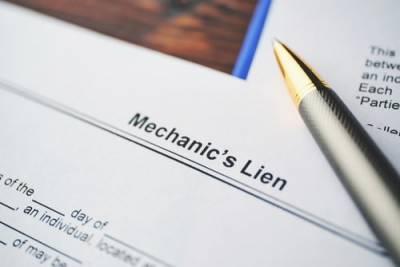 A mechanic's lien is a legal way for creditors to secure payment for work that has been done on a property. It is typically used by construction companies, subcontractors, suppliers, and other professionals whose services are used in the building or improvement of real estate, although finance companies may also need to address mechanic's liens as they take steps to collect debts. If a person or company is not properly paid for work that was performed or materials that were supplied, they may file a claim against the property that will require a lien to be paid before the property can be sold or ownership can be transferred in the future. To ensure that a mechanic’s lien will be valid and enforceable in court, there are certain steps that must be taken.
A mechanic's lien is a legal way for creditors to secure payment for work that has been done on a property. It is typically used by construction companies, subcontractors, suppliers, and other professionals whose services are used in the building or improvement of real estate, although finance companies may also need to address mechanic's liens as they take steps to collect debts. If a person or company is not properly paid for work that was performed or materials that were supplied, they may file a claim against the property that will require a lien to be paid before the property can be sold or ownership can be transferred in the future. To ensure that a mechanic’s lien will be valid and enforceable in court, there are certain steps that must be taken.
Filing the Lien
In order for a mechanic’s lien to be valid, it will need to be filed with the appropriate government office within strict timeframes. In Illinois, a claim can be filed with the recorder of deeds in the county where the property in question is located. This claim must be filed within four months after a construction project was completed, the date that materials were delivered, or when work was last performed. A claim must state the balance that is due, provide a description of the property, and include details about the contract to perform work or provide materials.
Enforcing a Judgment Through a Citation to Discover Assets to Debtor
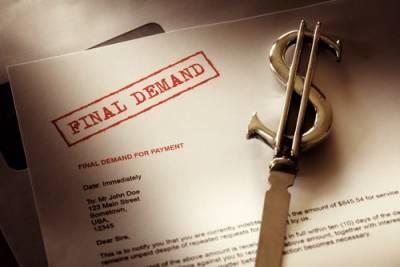 There are numerous situations where creditors may need to take legal action to collect debts, including by filing a lawsuit against a debtor and obtaining a legal judgment. After receiving a judgment, a creditor will then need to enforce the judgment, and they may be able to collect what is owed by seizing a debtor's assets or garnishing their wages. However, before doing so, a creditor may need to use a citation to discover assets to determine the financial resources available to the debtor that may be used to pay the amount owed.
There are numerous situations where creditors may need to take legal action to collect debts, including by filing a lawsuit against a debtor and obtaining a legal judgment. After receiving a judgment, a creditor will then need to enforce the judgment, and they may be able to collect what is owed by seizing a debtor's assets or garnishing their wages. However, before doing so, a creditor may need to use a citation to discover assets to determine the financial resources available to the debtor that may be used to pay the amount owed.
While citations can be served on multiple parties, including a financial institution or a debtor's employer, a Citation to Discover Assets to Debtor may be served to the debtor themselves, and it will require them to appear in court and answer questions about their assets and income. By understanding the procedures followed in these types of citations, creditors can ensure that they will be able to uncover the necessary information and compel a debtor to make payments or turn over assets.
How Can Creditors Avoid Claims of Harassment When Collecting Debts?
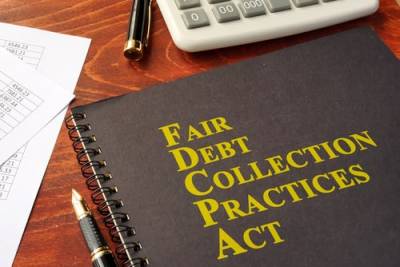 As a creditor, it is important to be aware of the laws regarding debt collection in order to avoid any potential claims of harassment. The Fair Debt Collection Practices Act (FDCPA) protects consumers from debt collectors who engage in abusive or unfair practices. These provisions apply to any person or entity that collects debts, including creditors and collection agencies. By understanding the applicable laws and taking steps to protect creditors' rights, a company that is seeking to collect debts can avoid actions that could potentially result in penalties.
As a creditor, it is important to be aware of the laws regarding debt collection in order to avoid any potential claims of harassment. The Fair Debt Collection Practices Act (FDCPA) protects consumers from debt collectors who engage in abusive or unfair practices. These provisions apply to any person or entity that collects debts, including creditors and collection agencies. By understanding the applicable laws and taking steps to protect creditors' rights, a company that is seeking to collect debts can avoid actions that could potentially result in penalties.
What Constitutes Creditor Harassment?
There are many different types of behavior that could be considered harassment when collecting debts. These include:
- Making repeated phone calls to a debtor in a manner that could be considered annoying or abusive
- Using obscene or threatening language during phone calls or other communication or correspondence
Can a Creditor Freeze or Seize Funds From a Debtor’s Bank Accounts?
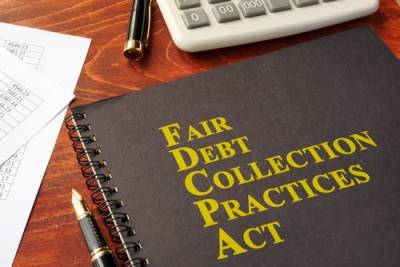 If you are a creditor and are owed money by a debtor, you may have several options for collecting on a judgment that you have obtained in court. While wage garnishment is a common way to collect judgments, other options may be available, including using non-wage garnishments to seize money from a person's bank accounts. In these situations, it is important to follow the correct steps to ensure that the money owed can be collected.
If you are a creditor and are owed money by a debtor, you may have several options for collecting on a judgment that you have obtained in court. While wage garnishment is a common way to collect judgments, other options may be available, including using non-wage garnishments to seize money from a person's bank accounts. In these situations, it is important to follow the correct steps to ensure that the money owed can be collected.
How Does a Creditor Seize Funds From a Debtor's Bank Accounts?
To collect money from a debtor's bank accounts, a creditor must serve a garnishment summons to the garnishee (the bank or financial institution). The garnishment summons and a garnishment notice will also be served to the debtor. The summons will include interrogatories asking the garnishee to provide information about the debtor's assets. After receiving the summons, the bank will be required to freeze the debtor's accounts, preventing them from withdrawing any funds until the case has been resolved. The summons will specify a "return date" by which the bank will be required to submit answers to the interrogatories. The bank must file an answer by this date unless they received the summons within 10 days before the return date, in which case they will have 14 days after the return date to respond.
When Can a Creditor Object to a Chapter 7 Bankruptcy?
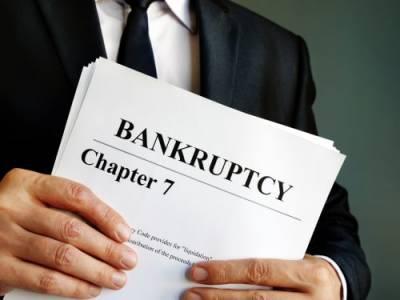 When a debtor files for Chapter 7 bankruptcy, creditors may be concerned about their ability to collect what is owed to them. In some situations, a creditor may be able to pursue an objection and challenge the debtor's right to a discharge of debts in a Chapter 7 bankruptcy. If the objection is successful, the debt owed to that creditor will not be discharged in the bankruptcy, and the creditor can continue to collect the debt from the debtor.
When a debtor files for Chapter 7 bankruptcy, creditors may be concerned about their ability to collect what is owed to them. In some situations, a creditor may be able to pursue an objection and challenge the debtor's right to a discharge of debts in a Chapter 7 bankruptcy. If the objection is successful, the debt owed to that creditor will not be discharged in the bankruptcy, and the creditor can continue to collect the debt from the debtor.
What Are the Grounds for Objecting to a Chapter 7 Bankruptcy Discharge?
Section 727 of the Bankruptcy Code details several reasons that creditors can object to a Chapter 7 discharge. Reasons that a creditor may object include:
- Fraud - Attempts by a debtor to defraud a creditor may result in the dismissal of a bankruptcy case. These may include attempts to conceal assets that could be seized by the bankruptcy trustee and liquidated to repay creditors, as well as improper transfers of assets to other parties within one year before filing for bankruptcy.
What Steps Do Creditors Need to Follow to Garnish a Debtor’s Wages?
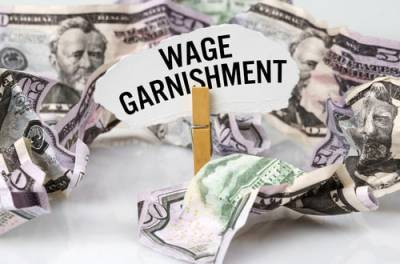 Creditors have multiple options for collecting the debts owed to them, and one of the most powerful ways of doing so is through wage garnishment. This is a legal process whereby a creditor can require an employer to withhold a portion of a debtor’s wages and pay that money directly to the creditor. Wage garnishment can be a very effective way of collecting a debt following a legal judgment, but there are certain steps that creditors need to follow in order to make wage garnishment happen.
Creditors have multiple options for collecting the debts owed to them, and one of the most powerful ways of doing so is through wage garnishment. This is a legal process whereby a creditor can require an employer to withhold a portion of a debtor’s wages and pay that money directly to the creditor. Wage garnishment can be a very effective way of collecting a debt following a legal judgment, but there are certain steps that creditors need to follow in order to make wage garnishment happen.
Wage Deduction Proceedings
A creditor may seek to garnish a debtor's wages after obtaining a legal judgment against the debtor. This judgment will show that the debtor owes a certain amount to the creditor and that the creditor has the right to collect the debt. To begin the wage garnishment process, a creditor must first provide a Wage Deduction Notice to the debtor. This notice will state the name and address of the debtor, the name and address of their employer, the amount of the judgment, and the return date. If the debtor wishes to dispute the wage deduction because they believe their income is exempt, they must request a hearing prior to the return date. The Wage Deduction Notice can be sent to the debtor through first-class mail.







